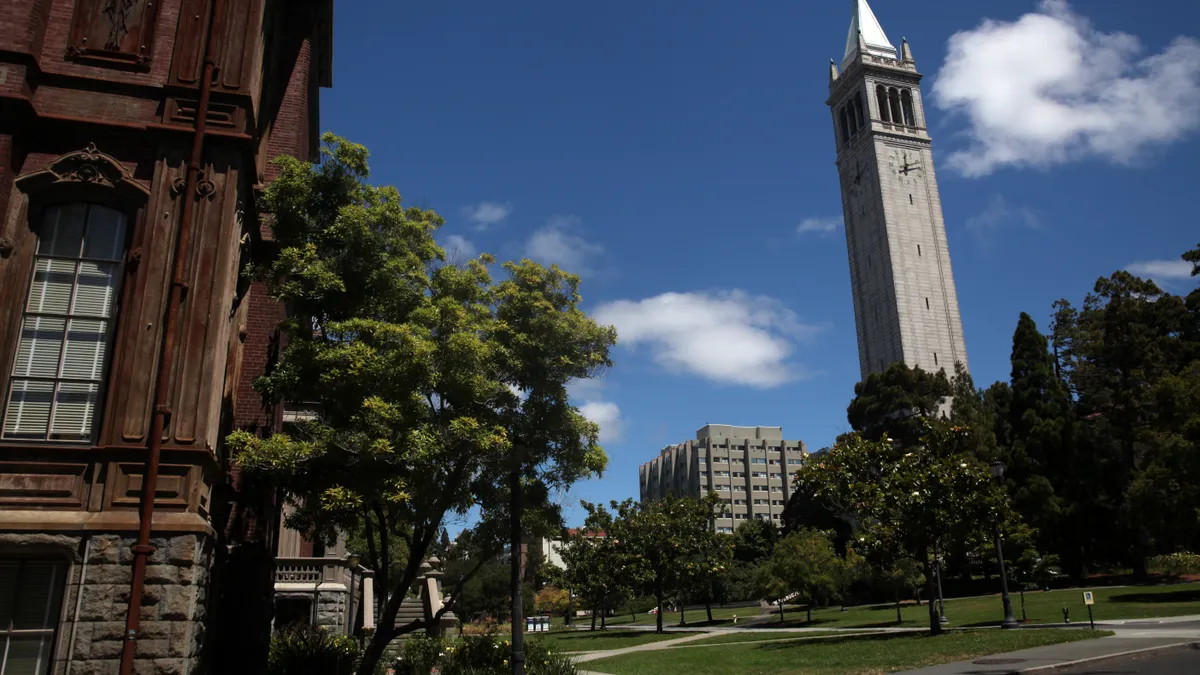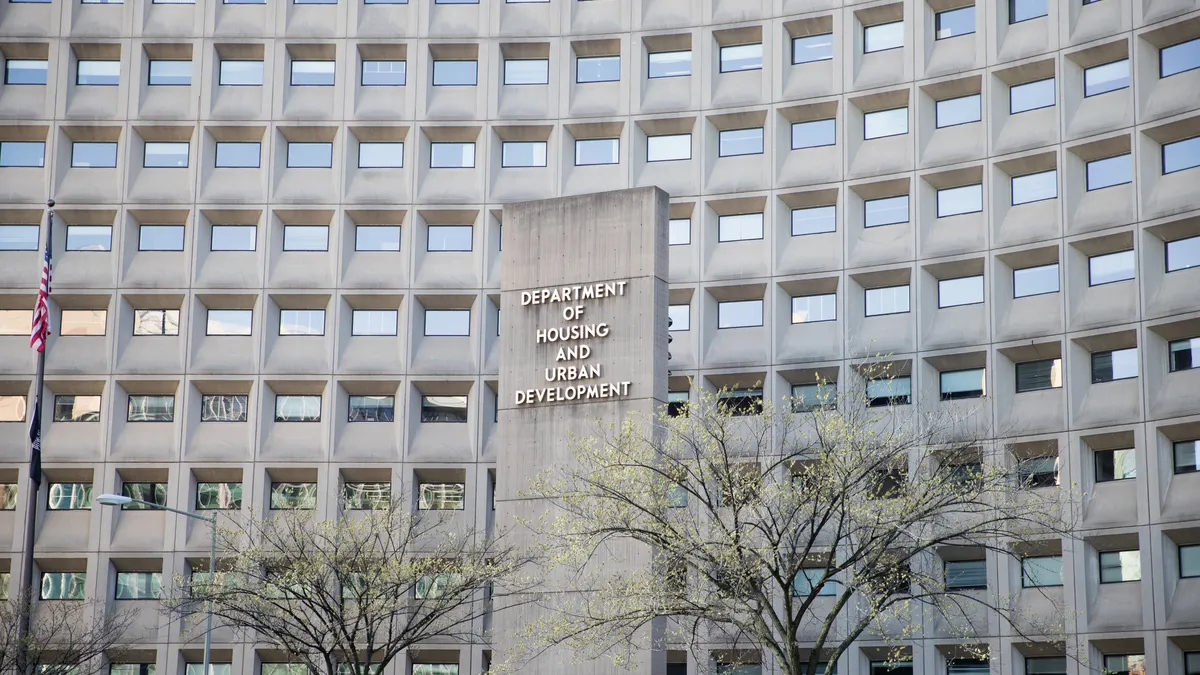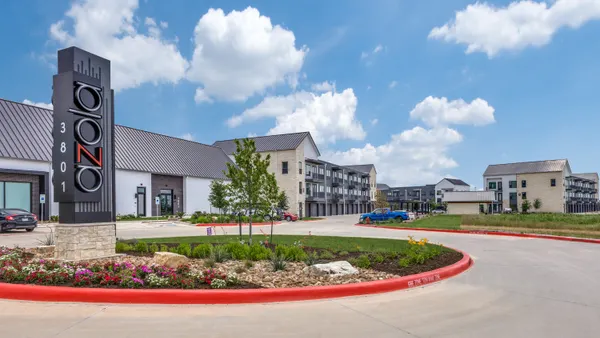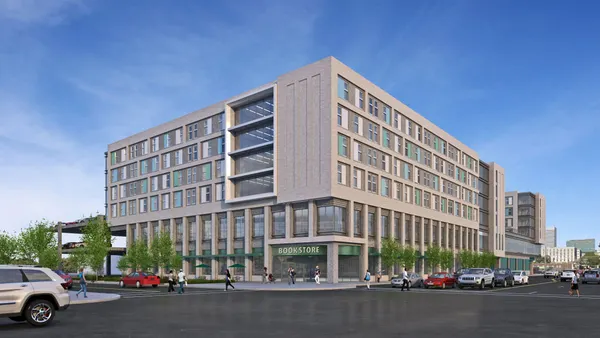Dive Brief:
- A University of California, Berkeley student housing project that had been blocked over noise concerns can now go forward under a bill Gov. Gavin Newsom signed into law Thursday.
- Amid a resident-led lawsuit, a state court ruled in February that the project could not advance, saying the increase in residential noise would be akin to pollution under the California Environmental Quality Act, a broad law that is often cited by development opponents.
- The new legislation, passed unanimously by the Legislature, specifies that residential noise is not considered a significant environmental effect under CEQA. The legislation also says that public universities won't have to weigh alternative locations for housing projects, so long as the desired spot is five acres or less or has already been included in the university’s most recent environmental impact report.
Dive Insight:
UC Berkeley is located in the Bay Area, one of the most expensive places to live in the country. Housing costs have skyrocketed in recent years due, in no small part, to an influx of tech workers and stagnant housing development. Though the university has sought to expand its student housing to address its capacity issues, local residents have pushed back.
The contentious housing project, to be built at the People's Park, is meant to begin addressing the issue. Plans include undergraduate housing for more than 1,100 students and permanent supportive housing for more than 100 extremely low-income individuals.
Newsom and the state's Legislature have vocally supported the development and earmarked $100 million for it in the 2022-23 budget. In April, Newsom also filed an amicus letter in the lawsuit, saying the argument laid out by the residents of Berkeley went beyond what the creators of CEQA intended.
Members of the resident-led group, Make UC a Good Neighbor, have worried their largely quiet neighborhoods will be overrun by college students and partying. The group’s lawsuit says the university failed to properly address the project’s environmental and community effects.
Supporters of the student housing project say the lawsuit is a classic example of NIMBYism. The term, short for "Not In My Backyard," is used to describe residents opposed to additional housing or development in their areas.
“California will not allow NIMBYism to take hold, blocking critically needed housing for years and even decades," Newsom said in a Thursday press release. He thanked legislative leaders for "taking on the status quo and clearing the way for our state to build more affordable housing.”
Student housing crises are not unique to California.
Fisk University, a historically Black institution in Nashville, Tennessee, is experiencing a huge enrollment boon — an almost 70% increase in the past five years, reaching a total of more than 1,000 students. In response, it opened a student housing development made of repurposed shipping containers in August. The project — a stopgap measure while a new residential hall is being built — can house almost 100 students and cost $4 million.
And in Vermont, Middlebury College offered $10,000 to juniors and seniors who plan to live on campus in exchange for them taking the fall and winter terms off. The buyouts were a partial solution to a pandemic-related influx of students.












